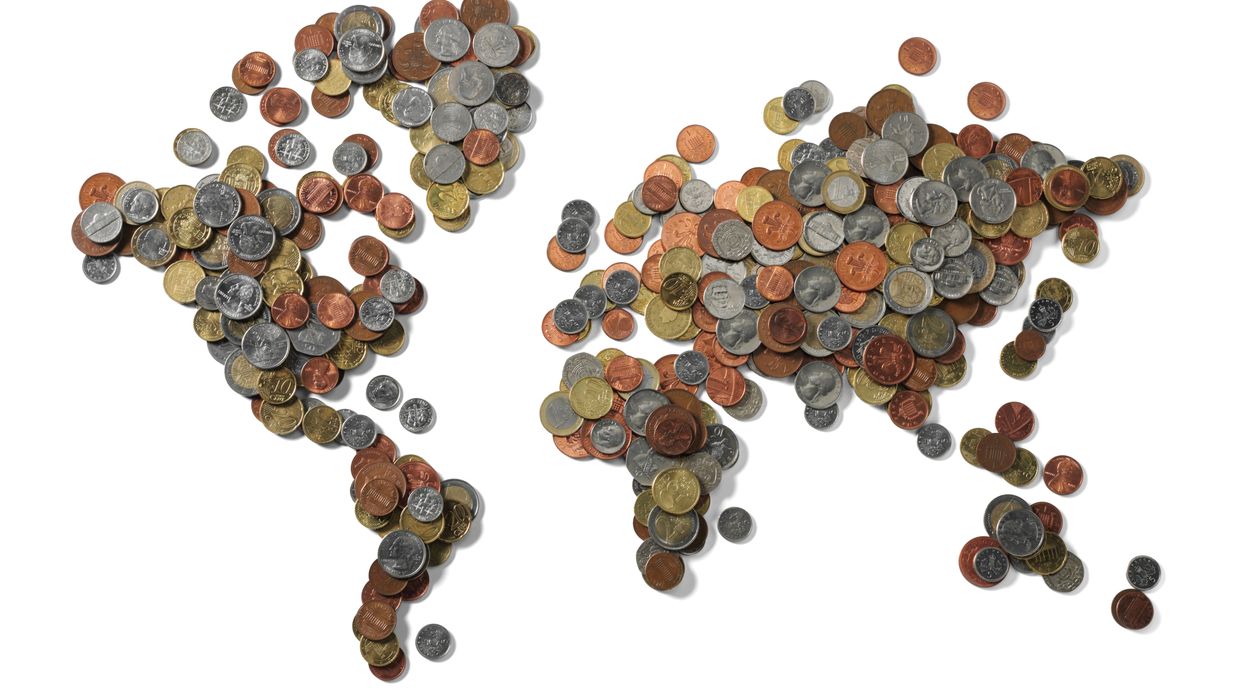When it comes to democracy, sometimes Americans believe they not only invented the idea, they perfected it.
But two respected annual report cards out this week — one looking at democracy and the other at its anathema, governmental corruption — offer some sobering context for those who might instinctively believe that the United States is going to be naturally at the top of the heap.
The latest corruption study, by the venerable global watchdog group Transparency International, finds trust in the United States' political system at an all-time low and that government corruption has become a major concern for most Americans. The newest report on the state of global democracy by the Economist finds the United States dropping steadily in the last decade when compared with other countries.
American corruption on the rise
Since 1995, Transparency International has published its Corruption Perceptions Index, which analyzes corruption around the world. Countries are ranked from 0 (highly corrupt) to 100 (very clean). Overall, two-thirds of the countries scored 50 or lower, with the average being 43.
For the second year in a row, it found corruption in the United States on the rise. For 2019, the country received a score of 69, a two-point drop from the year before and its worst score in a decade. Because France got the same score, both were ranked No. 23 out of the 180 countries included in the index.
The United States faces many challenges, the group notes, including threats to its system of checks and balances, the growing influence of special interests and the use of anonymous shell companies to hide illicit activities.
"While President Trump campaigned on a promise of 'draining the swamp' and making government work for more than just Washington insiders and political elites, a series of scandals, resignations and allegations of unethical behaviour suggest that the 'pay-to-play' culture has only become more entrenched," the group reported.
No country received a perfect score, although Denmark and New Zealand came closest with an 87. Other highly ranked countries include Finland, Singapore, Sweden and Switzerland.
At the very bottom is Somalia, with a score of 9. Venezuela, Yemen, Syria and South Sudan were also among the most corrupt.
American democracy on the decline
Meanwhile the United States has only the 25th best democracy in the world, far from the "We're No. 1!" shouting of the typically prideful American view, according to the 14th annual Democracy Index published this week by the Economist Intelligence Unit, an arm of the British-based company that publishes the Economist magazine.
That ranking places the United States among the countries considered to be "flawed democracies" in 2019.
The good news is that the country's score of 7.96 (on a scale of 10) is the same as in 2018. But its score and ranking fell steadily during the past decade. In 2010 it was No. 17.
Still, North America retains the highest average score (8.59) of any region in the Democracy Index. That was thanks to Canada, with a score of 9.22 that pulled the region to the top.
The United States received a 9.17 for electoral process and pluralism but was dragged down by a 7.14 for functioning of government.
Americans' support for democracy remains strong, the report acknowledges, but adds that "popular dissatisfaction with how democracy is working in practice, both in terms of government dysfunction and a lack of political representation by the two main parties, has grown in recent years."
And where do the British authors rank their own country? No. 14, in the top tier of countries considered "full democracies." This from a country that still has a monarch as head of state and a Parliament paralyzed for much of the year over how to extract the country from the European Union
Overall, democracy is on the decline among the 165 independent states and two territories covered in the report. In fact, the average global score for democracy of 5.44 is the lowest since the index was first produced in 2006.
The top scorer was Norway. The rest of the top tier looked like a podium at the Winter Olympics: Sweden was No. 3, Finland No. 5 and Denmark and Canada tied for 7th. At the bottom was North Korea with a 1.08 — the latest reminder that President Trump sending a birthday card to Kim Jong-un was pretty unusual. (Russia, by the way, tied for 134th — which is 19 places ahead of China.)



















